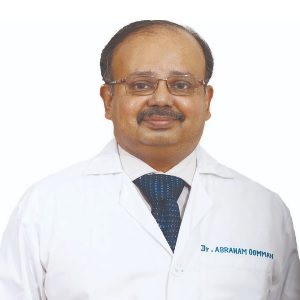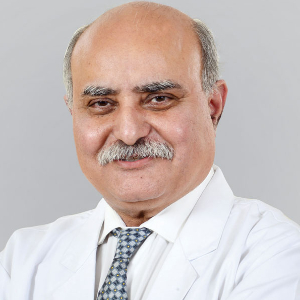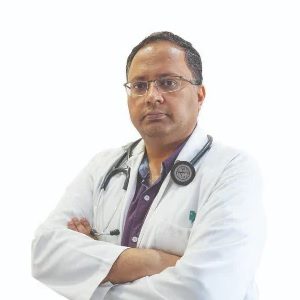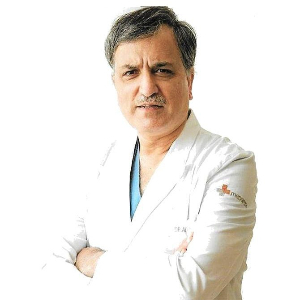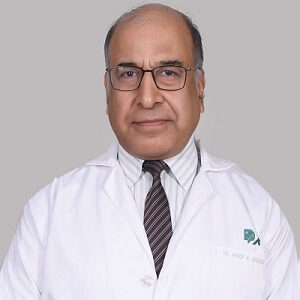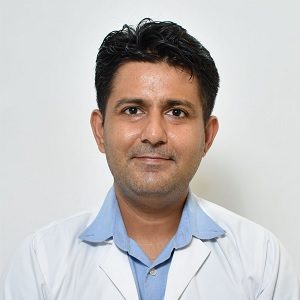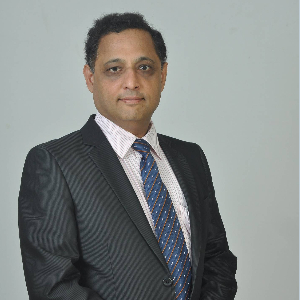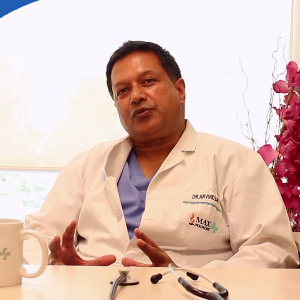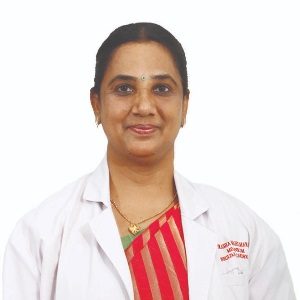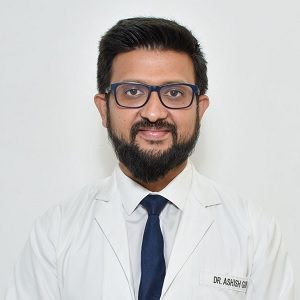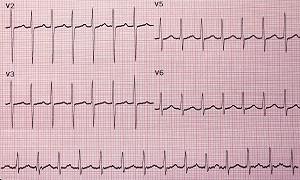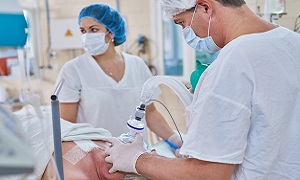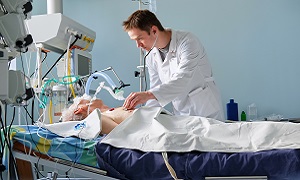Best Doctors in India for Ross Procedure
- Cardiologist, Chennai, India
- Over 31 years’ experience
Profile Highlights:
- Dr. Abraham Oomman is one of the best Cardiologists in Chennai, having an experience of 31 years in this field.
- Dr. Oomman offers consultation and also performs cardiac procedures. He specializes in Preventive Cardiology, Interventional Cardiology, Rheumatic Heart Disease, and Lipidology.
- Patients also visit him for ASD and VSD Surgery, Dextro-Transposition of the Great Arteries (DTGA), Minimally Invasive Cardiac Surgery, and Vascular Surgery.
- Cardio Thoracic & Vascular Surgeon, New Delhi, India
- Over 30 years’ experience
Profile Highlights:
- Dr. Ajay Kaul is a leading name in the field of Cardiothoracic and Vascular Surgery in India with over 3 decades of experience.
- He specializes in Coronary Bypass surgery and is one of the best with the highest number of total arterial coronary bypass surgery (4000+) by using two internal mammary arteries from the chest and without any cuts on arms and legs.
- He is also an expert in minimally invasive cardiac surgeries (MICS) and has performed more than 4000 MICS which is the highest by any cardiac surgeon in India.
- Interventional Cardiologist, New Delhi, India
- Over 23 years experience
Profile Highlights:
- Dr. Amit Mittal is a cardiologist working at Indraprastha Apollo Hospital in New Delhi with experience of over 23 years in Interventional Cardiology.
- He is good to consult for Angiogram, Angioplasty, and Bypass Surgery. Dr. Mittal has performed over 15,000 cardiac procedures till now. He offers services like EPS and RFA procedures, pacemaker implantation, ECG, complex surgery of heart valve replacement, and angina treatment, to name a few.
- Apart from that, Dr. Mittal won a Gold medal in MBBS 1st y and for the highest marks in obstetrics and gynecology. He published many papers in national and international medical journals and chapters in textbooks.
- Cardio Thoracic & Vascular Surgeon, Gurugram, India
- Over 35 years’ experience
Profile Highlights:
- Dr. Anil Bhan is an excellent Cardiovascular and thoracic surgeon who has performed more than 15,000 cardiac and vascular surgeries that include heart transplant surgery, aortic aneurysm surgery, pediatric cardiac surgery, valve repairs, and peripheral vascular surgery among several others.
- He is one of the best pediatric cardiac surgeons in Delhi/ NCR and is credited with performing heart bypass surgery on the youngest patient in India in 2007 (18 months).
- He performed the first extracorporeal membrane oxygenation and was the first to use a harmonic scalpel for harvesting radial mammary artery conduits in India in 2000 and 1995 respectively.
- Cardiothoracic Surgeon and Vascular Surgeon, New Delhi, India
- Over 42 years’ experience
Profile Highlights:
- Dr. Anoop K Ganjoo is one of the best cardiologists & cardiothoracic surgeons in India with a total experience of 42 years.
- Dr. Ganjoo has a rich experience of over two decades in several complicated procedures, like Mitral valve repair and replacement, Peripheral and Coronary angiography & angioplasty, vascular surgery, ICD, diffuse coronary artery disease, Pacemaker, Radiofrequency ablation of arrhythmias, adult Cardiothoracic Surgery, CRT implantation, Balloon valvuloplasty, and PDA device closure.
- Cardiologist, Gurugram, India
- Over 6 years’ experience
Profile Highlights:
- Dr. Anurag Passi is a young cardiologist in Gurugram and is well-known for his meticulousness, precise diagnosis, and compassionate care of patients.
- He is proficient in performing procedures like Primary Angioplasty, Transradial Intervention, Pacemaker, ICD and CRT implantation, and Complex coronary interventions (Unprotected Left Main, Bifurcation, and CTO).
- Presently, he is practicing as a Senior Consultant of Cardiology at Max Hospital in Gurugram.
- Cardio Thoracic & Vascular Surgeon, Mumbai, India
- Over 30 years’ experience
Profile Highlights:
- Dr. Anvay Mulay is a well-known cardiothoracic and vascular surgeon in Mumbai and one of the best heart transplant surgeons in India.
- He holds an extensive experience of close to 3 decades and has been associated with renowned cardiac hospitals in India, US, and UK.
- Dr. Mulay is one of the top surgeons for Adult cardiac procedures in India. He was the first to introduce LVAD in West and Central India when he performed the surgery on a 49-year-old patient.
- Interventional Cardiologist, New Delhi, India
- Over 24 years’ experience
Profile Highlights:
- Dr. Arvind Das is an interventional cardiologist with expertise in all kinds of coronary and non-coronary interventions and electrophysiology.
- Dr. Arvind Das received his fellowship training in pacing and electrophysiology from the renowned Royal Melbourne Hospital in Australia. He has undergone training at Semelweiss Heart Centre, Budapest for Device Implantation.
- Dr. Arvind Das has years of knowledge and experience in various cardiac procedures and provides the best diagnostic and therapeutic treatment for all types of heart diseases and disorders.
- Interventional Cardiologist, Chennai, India
- Over 32 years’ experience
Profile Highlights:
- Dr. Asha Mahilmaran is a seasoned Interventional Cardiologist in Chennai, with more than three decades of expertise in the sector.
- She excelled in academics and was awarded a gold medal in medicine and cardiology.
- Dr. Mahilmaran offers Ventricular Septal Defect Surgery, Cardioversion, Carotid Artery Disease, Chest Pain Treatment, Cardiac Ablation, and Dextro-Transposition of the Great Arteries (DTGA), etc.
- Over the years, she has performed over 15,000 preventive heart checkups.
- Cardiologist, Gurugram, India
- Over 15 years’ experience
Profile Highlights:
- Dr. Ashish Gupta is a renowned cardiologist in Gurugram with expertise in noninvasive and interventional cardiac procedures.
- He performed several life-saving primary angioplasties in acute heart attacks, complex heart interventions, and ICD/ CRT/ pacemaker implantations with a high success rate.
- Some of the services available with the doctor include PET scan, Nuclear Thallium Test, TMT, Holter monitoring, echocardiography, etc.
Best Hospitals in India for Ross Procedure
Indraprastha Apollo Hospital, New Delhi
- City: New Delhi, India
Hospital Highlights:
- Indraprastha Apollo Hospital is a 700-bedded multispecialty hospital in the heart of the capital of India. It is a part of Apollo Hospital group, one of India’s most reputed healthcare chains. Indraprastha Apollo Hospital has been accredited by Joint Commission International, making it the first internationally accredited hospital in the country in 2005.
- There are 52 specialties in the hospital with one of the best cardiology centers in the country. The hospital is also equipped with State of the art infrastructure facilities with the largest Sleep Lab in Asia and the largest number of ICU bed facilities in India.
- The hospital also has one of the largest dialysis units in India along with a dedicated Bone Marrow Transplant unit.
- The latest and highly advanced technologies that are installed in the hospital include Da Vinci Robotic Surgery System, PET-MR, PET-CT, Cobalt-based HDR Brachytherapy, Brain Lab Navigation System, Tilting MRI, Portable CT scanner, 3 Tesla MRI, 128 Slice CT scanner, DSA Lab, Endosonography, Hyperbaric Chamber and Fibro scan.
Fortis Memorial Research Institute, Gurugram
- City: Gurugram, India
Hospital Highlights:
- Fortis Memorial Research Institute is a multi-super-specialty, quaternary care hospital with 1000 beds. The hospital comprises reputed clinicians, and international faculty and is also equipped with cutting-edge technology. The hospital is a part of Fortis Healthcare Limited, a reputed chain of private hospitals in India.
- It is a NABH-accredited hospital that is spread across 11 acres of land and has a capacity of 1000 beds. The hospital has 55 specialties and is one of the premier health care centers in the Asia Pacific region popularly known as “the Mecca of Healthcare”.
- The hospital has 260 diagnostic centers and is also equipped with the latest and advanced techniques that include 3 Telsa which is the world’s first Digital MRI technology. The hospital also has world-class Radiation Therapy techniques which have been developed by leading technology experts from Elekta and Brain Lab.
Apollo Hospital, Chennai
- City: Chennai, India
Hospital Highlights:
- Apollo Hospitals, Chennai, is one of the best hospitals for heart care in India. Over the years, Apollo has expanded all over India, as a healthcare chain.
- India’s first ‘Only Pancreas’ transplant was performed in Apollo Hospital. The hospital is known for successfully performing Asia’s first en-bloc combined heart and liver transplant, and over the years, it has attained a remarkable achievement in the global healthcare space. Around 3-4 organ transplants are performed in the hospital per day.
- Equipped with over 500 beds, this hospital in Chennai was established in 1983 and since then has been among the most preferred hospital for patients from all over the world.
- The hospital holds accreditation of the NABH and JCI and is the first hospital in India to be ISO 9001 and ISO 14001 certified. It is also the first South Indian Hospital to receive subsequent reaccreditation from the JCI USA 4 times.
Medanta-The Medicity, Gurgaon
- City: Gurugram, India
Hospital Highlights:
- One of India’s best and largest multi-specialty hospitals, Medanta was built with the aim to bring India to the highest standards of medical care. The hospital has been providing the best medical services to its patients, since its inception, with care, commitment, and compassion.
- Equipped with 1250 beds, the hospital was founded by Dr. Naresh Trehan in the year 2009 with an aim to provide the best medical care at affordable costs. The hospital is spread across 43 acres and includes 45 operation theatres and 350 beds dedicated solely to ICU. The hospital includes over 800 doctors, and more than 22 specialty departments and has a dedicated floor for individual specialty in order to offer the best services under one roof.
- The hospital is considered one of the premier institutes in India for Cardiac Care and includes staffs and members of high caliber. The hospital has 6 distinct centers of excellence.
Max Super Specialty Hospital, New Delhi
- City: New Delhi, India
Hospital Highlights:
- One of the well-regarded providers in India committed to the highest standards of clinical excellence and patient care, Max Super Specialty Hospital is a part of Max Healthcare, which is the second-largest healthcare chain in India. Regarded as one of the most well-regarded healthcare providers in the country, Max Super Specialty Hospital is committed to the highest standards of clinical excellence as well as patient care. The hospital is also equipped with the latest technology as well as cutting-edge research. The hospital is known to deliver and ensure the highest level of patient care.
- The hospital has more than 500 beds and offers treatment for over 35 specialties. The hospital also holds the credit of having installed the first Brain Suite in Asia. This is a highly advanced Neurosurgical machine that allows MRI to be taken while surgery is ongoing.
- Other advanced and latest technologies are also installed in the hospital such as the 1.5 Tesla MRI machine, 64 Slice CT Angiography, 4D ECHO, LINAC, and 3.5T MRI machine.
Artemis Hospital, Gurugram
- City: Gurugram, India
Hospital Highlights:
- One of the most well-known hospitals in the Delhi NCR, Artemis Hospital is the first hospital in Gurugram to get accredited by the Joint Commission International.
- With more than 40 specialties, the hospital has been designed to be one of the most technically advanced hospitals in the country, with the best medical and surgical health care. The hospital has eleven special and dedicated centers, for Heart, Cancer, Neurosciences, etc.
- The latest technologies in the hospital include Endovascular Hybrid Operating Suite and Flat panel Cath Labs for the cardiovascular department, 3 Tesla MRI, 16 slice PET CT, 64 Slice Cardiac CT Scan, HDR Brachytherapy, and highly advanced Image Guided Radiation Therapy techniques (LINAC) are installed in the hospital.
- The hospital has won several awards as well, since its inception.
BLK Max Super Specialty Hospital, New Delhi
- City: New Delhi, India
Hospital Highlights:
- Equipped with 650 beds, BLK Superspecialty Hospital is the largest stand-alone private sector hospital in Delhi.
- With over 1500 healthcare providers and 150 globally renowned super specialists, the hospital is one of Asia’s largest Bone Marrow Transplant Centres. The hospital is known for having some of the best cancer doctors in the country.
- The hospital is NABH and NABL accredited and was inaugurated by the first Prime Minister of India. Pt. Jawahar Lal Nehru.
Gleneagles Global Hospitals, Chennai
- City: Chennai, India
Hospital Highlights:
- Established in 1999, Gleneagles Global Hospital, Chennai, is one of the top healthcare facilities in Southern India. It is part of the Gleneagles Hospital Chain, which is the fourth largest healthcare chain in the country. The hospital specializes in multi-organ transplants of kidneys, liver, lungs, heart, etc.
- The hospital has an excellent infrastructure and state-of-the-art lab and equipment set-up. The hospital boasts cutting-edge technologies, a highly skilled team of doctors and surgeons, and trained support staff. Located in Perumbakam, Chennai, it is one of India’s premier health care destinations. The hospital has performed some of the most complex surgical and clinical procedures in India including multi-organ transplantations.
- The hospital’s lung transplantation program is one of the best in the country. The hospital is known for having performed India’s first single lung transplant and first minimal invasive lung transplant. It is also the only Indian hospital to be associated with King’s College Hospital, London, United Kingdom for liver transplantations.
Fortis Hospital, Mulund, Mumbai
- City: Mumbai, India
Hospital Highlights:
- Fortis Hospital in Mulund is a 315-bed multi-speciality tertiary care hospital with five JCI accreditations that offers a wide variety of diagnostic and therapeutic services. The Fortis Hospital in Mulund delivers patient-centred treatment with cutting-edge technology, highly skilled and experienced surgeons, and paramedical staff.
- This institution houses Maharashtra’s largest multi-organ transplant centre. It is also the first heart transplant centre in western India to conduct 100 or more consecutive heart transplants in under four years. It is the only hospital in the city to have multi-organ transplants and has handled the youngest patient for angioplasty. Fortis Hospital Mulund now boasts the first advanced surgical robot in central Mumbai.
- Cardiology and heart surgery, urology, nephrology, neurosciences, orthopaedics, digestive care, emergency and critical care, and maternity care are among the services provided by the hospital.
Kokilaben Dhirubhai Ambani Hospital, Mumbai
- City: Mumbai, India
Hospital Highlights:
- Kokilaben Dhirubhai Ambani Hospital, Named after the wife of Indian industrialist Dhirubhai Ambani, the founder of Reliance Industries, this is one of the top hospitals in Mumbai. This 750-bed multi-specialty hospital became operational in 2009. Known as one of India’s most advanced tertiary care facilities, the hospital is designed to raise India’s global standing as a healthcare hub, with an emphasis on excellence in clinical services.
- Kokilaben Dhirubhai Ambani Hospital uses Protocol and Care Pathway based treatment models to ensure the best outcomes for patients.
- The hospital represents a confluence of top-notch talent, cutting-edge technology, state-of-the-art infrastructure, and, most importantly commitment.
- The hospital also holds the accreditation of the NABH, NABL, CAP, and JCI.
- The hospital has been recognized as the No. 1 Multispecialty Hospital in Mumbai and the West Zone for the fifth year in a row in 2020 by The Week.
Ross Procedure
The Ross procedure also known as the pulmonary autograft procedure, is a surgical technique meant to replace a diseased aortic valve. The procedure involves replacing the person’s aortic valve with a person’s own pulmonary valve. The pulmonary valve is next replaced with the person’s own pulmonary allograft.
The procedure is used more often in children, but its use in adults is controversial.
The procedure has been named after Dr. Donald Ross, a pioneer in cardiac surgery in the UK, who had performed it first in 1967.
Purpose
Over the past few years, the Ross procedure has gained significant popularity among people who need an aortic valve replacement. An operation is generally an excellent option for physically active young children, as well as young women who are of childbearing age.
The procedure is preferred as it has many as it has several advantages which include:
- No need for anticoagulation
- Growth potential in children
- Low incidence of thromboembolism
- Excellent Hemodynamics
- Low incidence of endocarditis
Preparation
It is likely that your doctor will recommend a few tests before the procedure, which includes:
- Chest X-ray
- Blood tests, in order to check the general health
- Electrocardiogram, to check the heart rhythm
- Echocardiogram, in order to look at the heart and the blood flow through the heart
- Heart catheterization, to better look at the coronary blood vessels or to measure the pressure in the heart and lungs
The hair around the area of operation might be removed prior to the surgery.
Procedure
Next, your surgeon will make an incision in the middle of the chest. In order to reach the heart, the surgeon will be separating the breastbone. Next, he/she will remove your diseased aortic valve and replace it with your own pulmonary valve, which is similar in anatomy.
Next, the breastbone is put together with wires, and the surgeon closes the muscle and the skin. A dressing will be applied as well.
Within a few months, the pulmonary valve becomes thicker and stronger and begins to behave like an aortic valve.
After the procedure
Risks
In most cases, the surgery is a success. But sometimes there might be a few complications. Risk factors might vary based on your age as well as other health problems. Some of the risks associated with this procedure include:
- Infection
- Excess bleeding
- Heart block
- Irregular heart rhythms
- Complications from anesthesia
- Blood clots leading to stroke or heart attack
Sometimes, the surgery might fail to work. This might make another surgery necessary.

